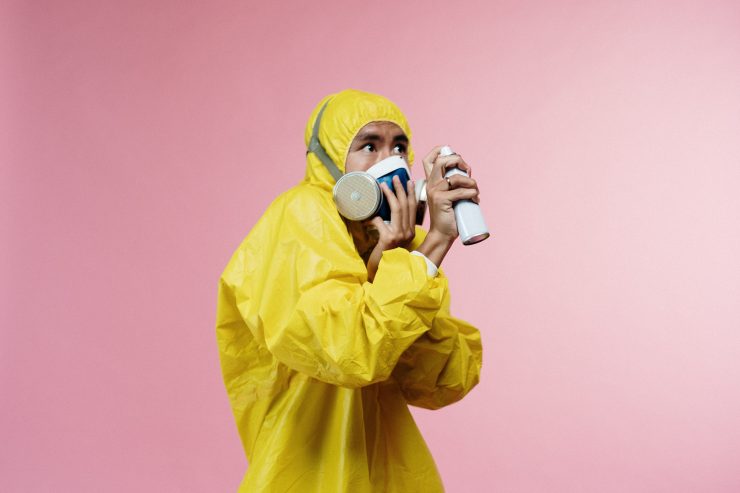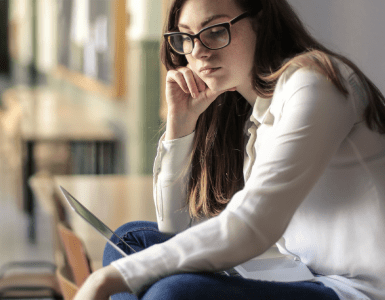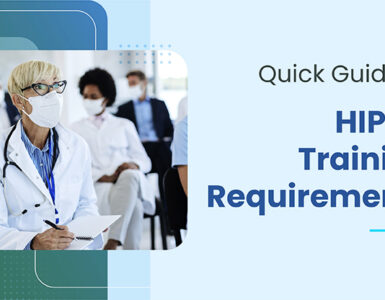Myths can turn out to be more dangerous than a real threat. The coronavirus crisis proves this. The death toll of more than 42,000 people proves this. Would the COVID-19 infection have spread this rapidly if we had been more cautious?
- Hot and humid weather will not slow the spread of the virus
There is no safety from the coronavirus disease even if the weather becomes warm and humid. The evidence suggests that the coronavirus can survive and transmit under all weather conditions, including hot and humid climate.
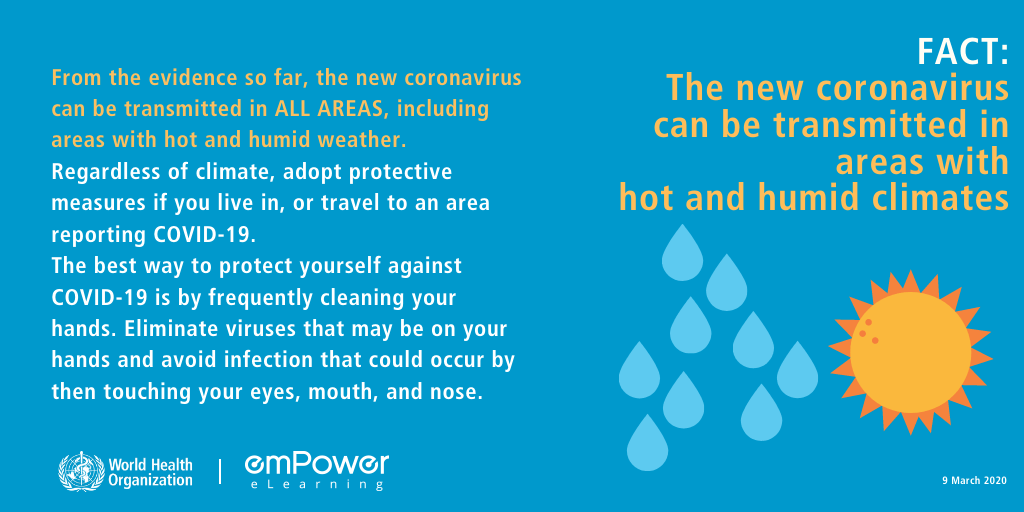
- Cold weather cannot kill the coronavirus
There is no evidence to support the popular belief that cold weather can kill the coronavirus. Whatever the outside temperature, our body temperature remains between 97F to 99F.
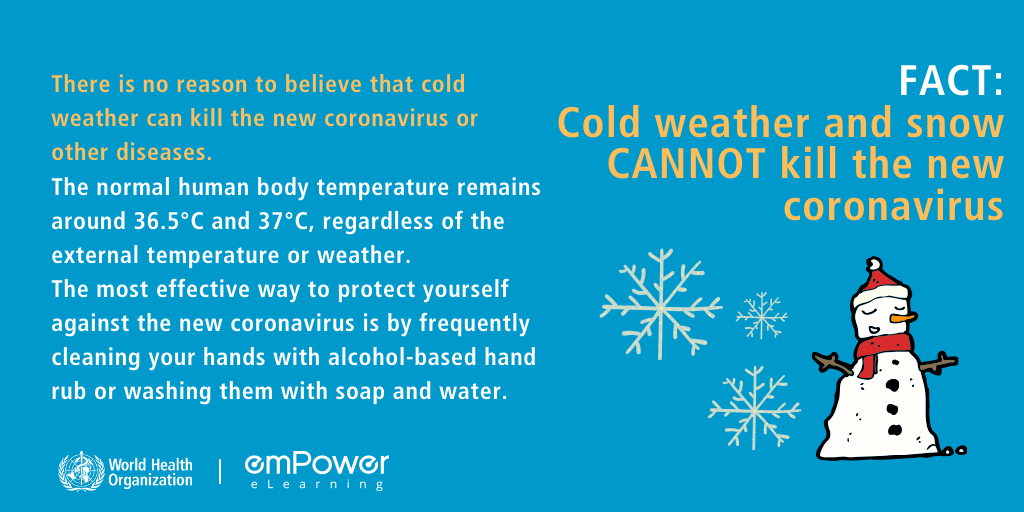
- Hot bath does not help
You may even end up harming yourself. May whatever you do; your body temperature will always be between 97F to 99F. Besides, taking a bath with extremely hot water can burn your skin.
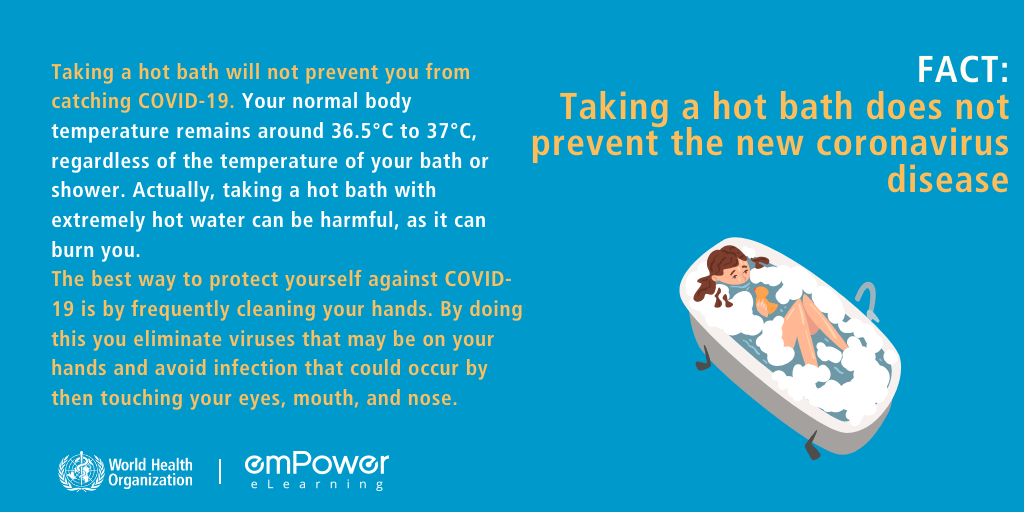
- Mosquito-bites do not transmit the COVID-19 disease
As per the WHO, there is NO evidence to support that mosquitoes can spread this virus. The new coronavirus is a respiratory virus – it spreads through cough and sneezes, or through saliva or a runny nose. So, avoid close contact with people who have a runny nose or are sneezing or coughing.
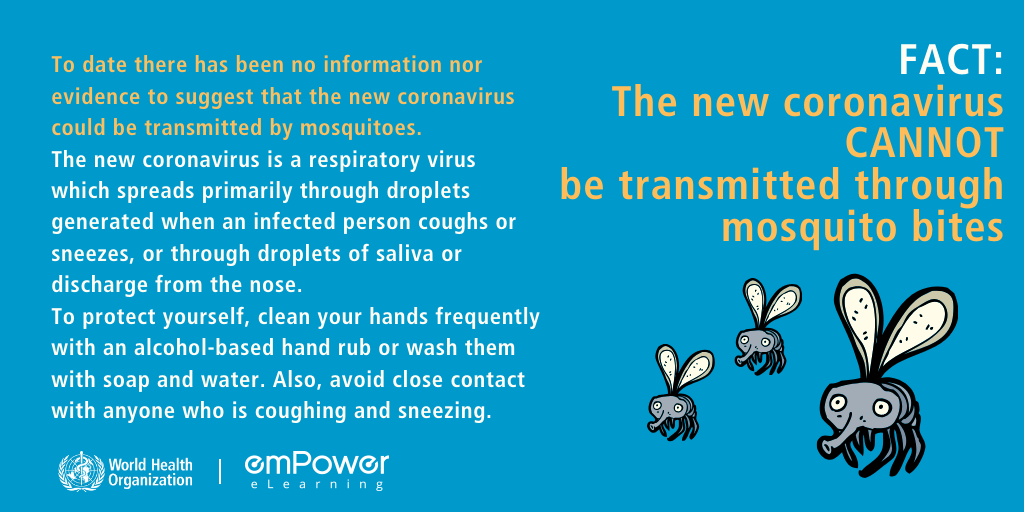
- Hand dryers aren’t effective in killing the coronavirus
Hand dryers cannot kill the coronavirus. Washing hands is the only protection that you have. Wash your hands for 20 seconds, then dry them with a paper towel. Or, you can use alcohol based hand sanitizers.
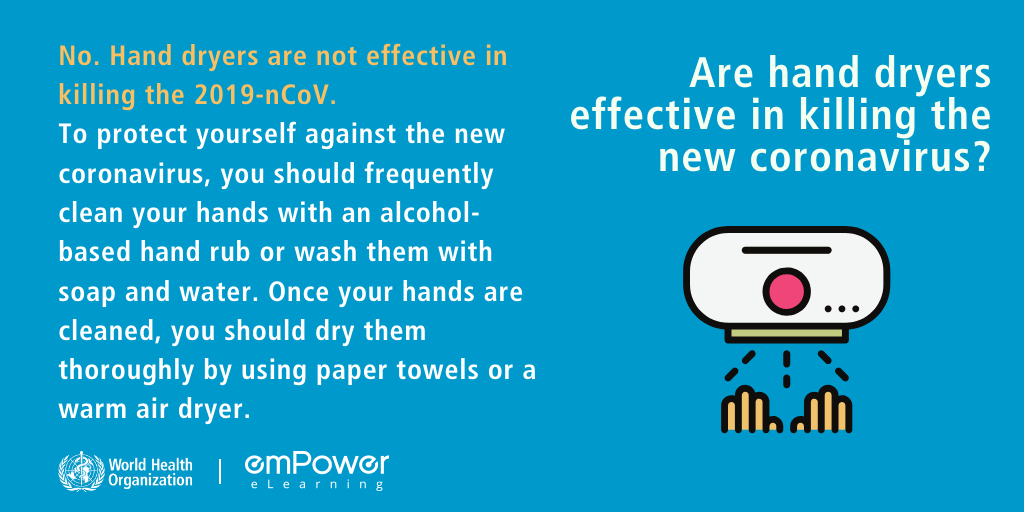
- Ultraviolet disinfection lamps can kill the new virus
Beware! UV radiation can hurt your skin. Do not use UV lamps to sterilize your hands.
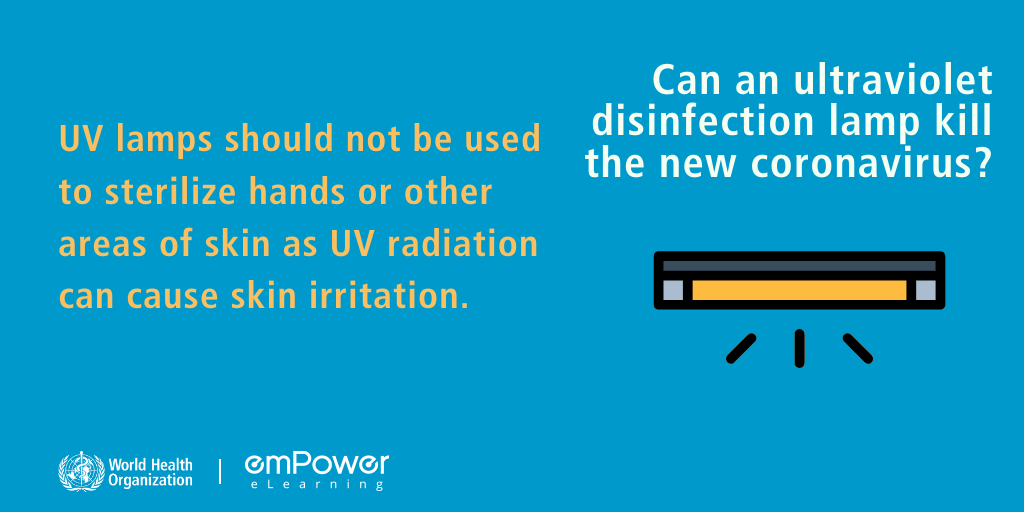
- Thermal scanners can detect an infected person
Thermal scanners will work only on those people who are infected and have also developed a fever. But that won’t be true for all infected people. People with COVID-19 become sick or get feverish only after 2-10 days of acquiring the infection. Thermal scans are useless against infected people who haven’t yet developed a fever.
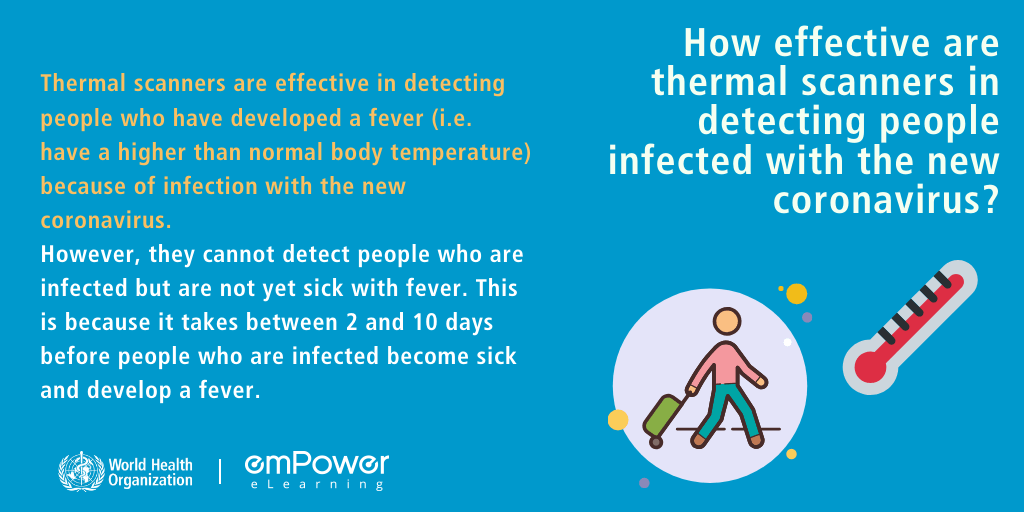
- Spraying alcohol or chlorine over your body does not work
Using alcohol or chlorine all over your body can harm your eyes, ears, lips, the inside of your mouth and nose and much more. It can damage the mucous membranes of your body.
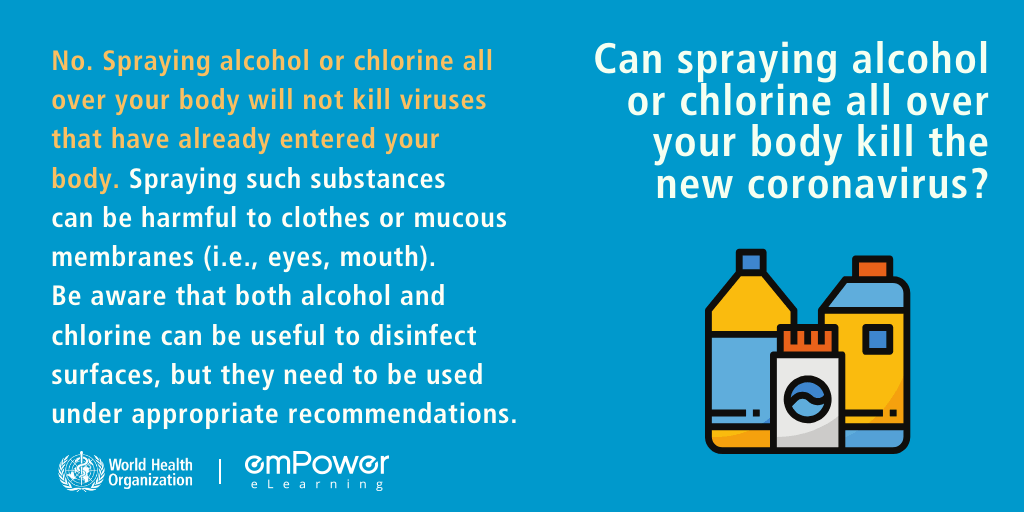
- Pneumonia vaccines don’t work against the new coronavirus
Using Pneumonia vaccines, such as pneumococcal and Hib vaccine DO NOT work against the COVID-19 virus. As per the WHO, existing vaccines don’t work against this virus. However, the WHO does recommend vaccination against respiratory illnesses.
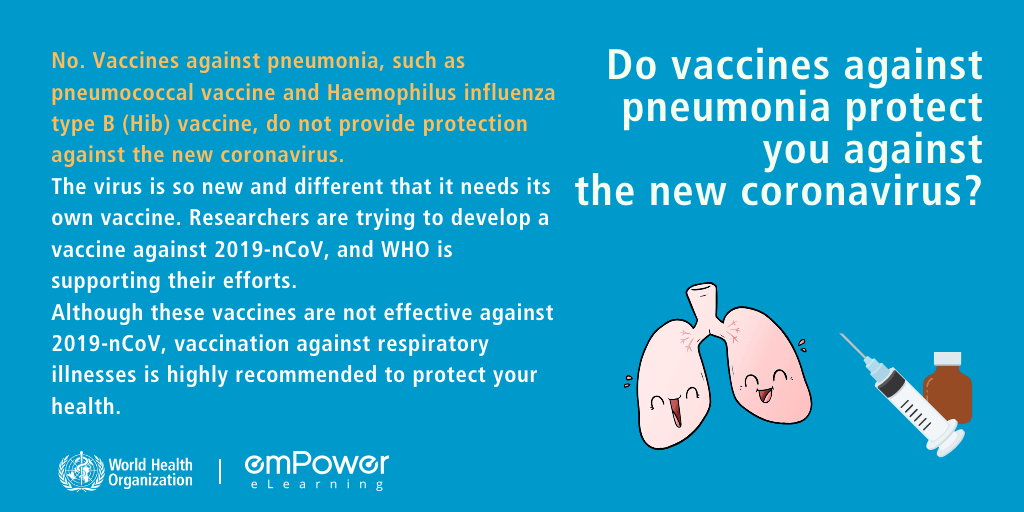
- Rinsing your nose with saline won’t protect you against the infection
Use of saline doesn’t work against respiratory infections. Regularly using it to rinse your name may have worked when you caught the common cold. But, COVID-19 is NOT COMMON COLD.
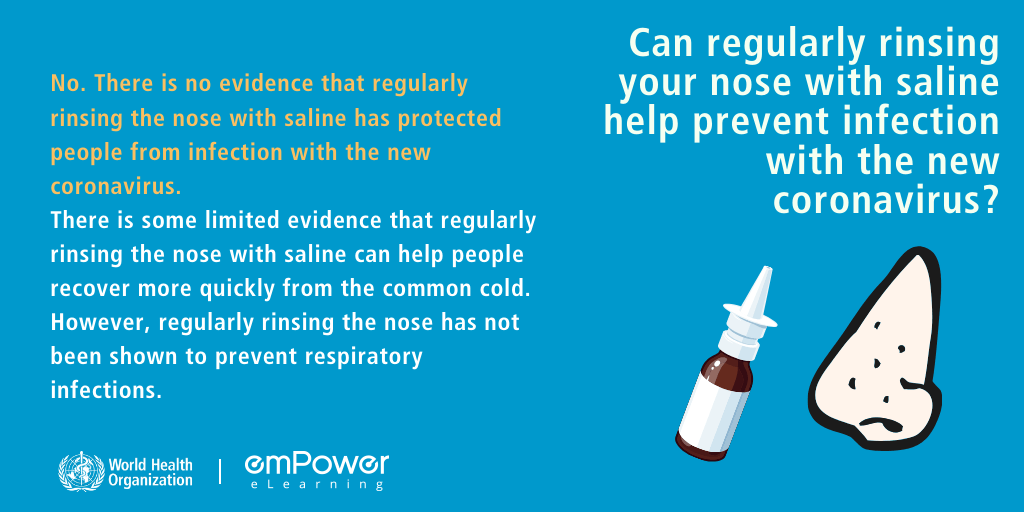
- There is no evidence that eating garlic works against coronavirus
Garlic has antimicrobial properties. However, no credible evidence exists of its success against the new coronavirus.
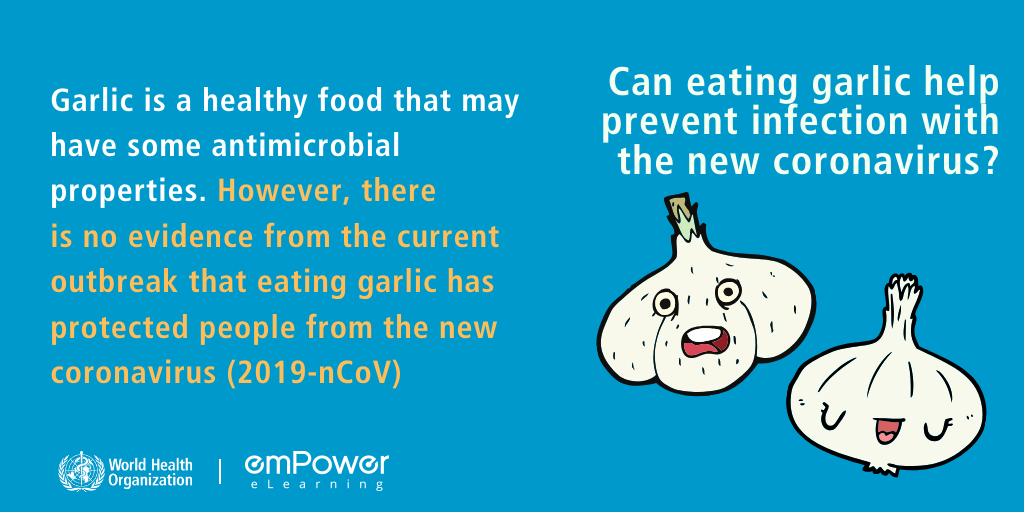
- Coronavirus can affect people of all ages
Coronavirus threatens not just the older population but everyone old or young can become ill upon infection. It seems that the older people and people with pre-existing medical conditions are more vulnerable to the COVID-19 virus.
You should – it doesn’t matter how old you are – take steps to protect yourself by using good hand and respiratory hygiene.
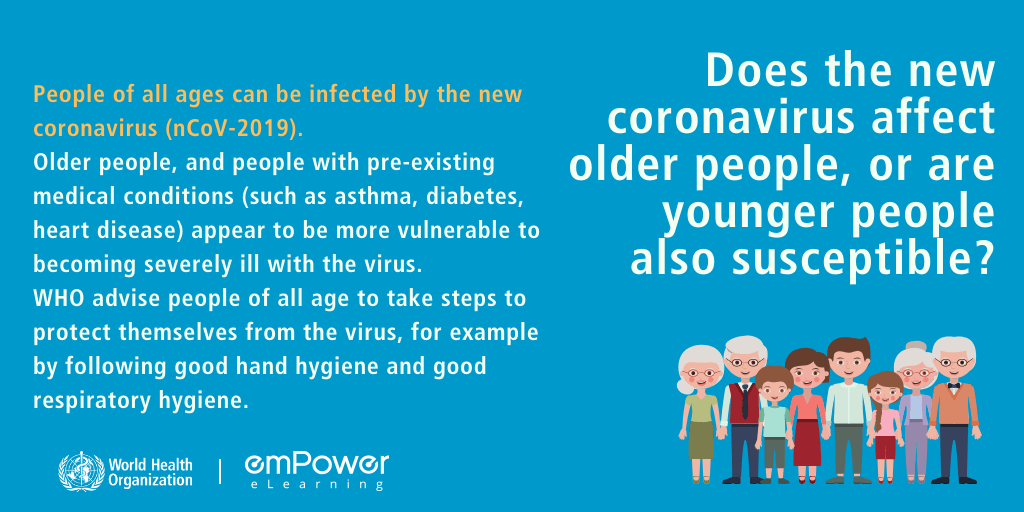
- Antibiotics don’t work against this virus
Antibiotics should not be used as a means of treatment or prevention. Antibiotics should be used only against bacterial diseases. COVID-19 is a viral disease. The only preventive measure known to work against this new virus is frequently cleaning hands with soap and water or alcohol-based hand-rub.
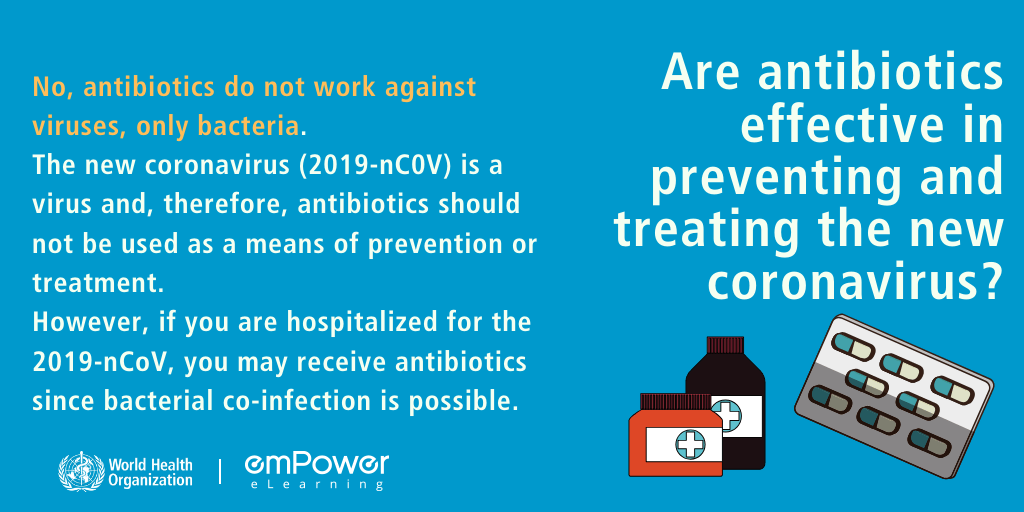
- There are NO known medicines that work against the new coronavirus
There are no recommended medicines that can help prevent or treat COVID-19. However, every person infected with the coronavirus should be given appropriate care to relieve and treat the symptoms, and those with a severe condition should receive supportive care.
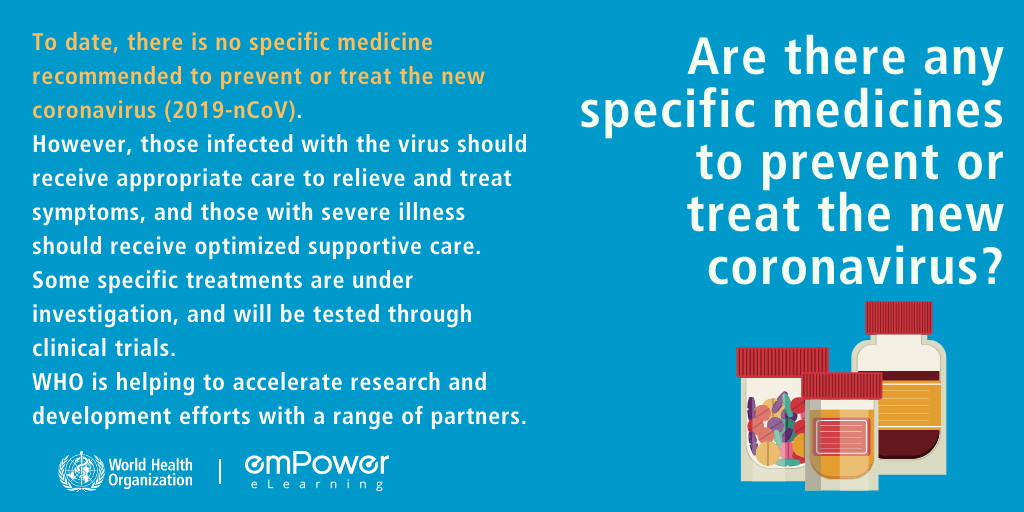
Three Steps to protect yourself from COVID-19
There are only 3 simple steps to protect you and your family from the COVID-19 infection. Follow the rules of social distancing, wash your hands, and do not touch your mouth or nose.
To make things easy, emPower instructors have compiled important advisories into a 20 minute coronavirus prevention training. Please feel free to take the course, and share it with your friends and family.


